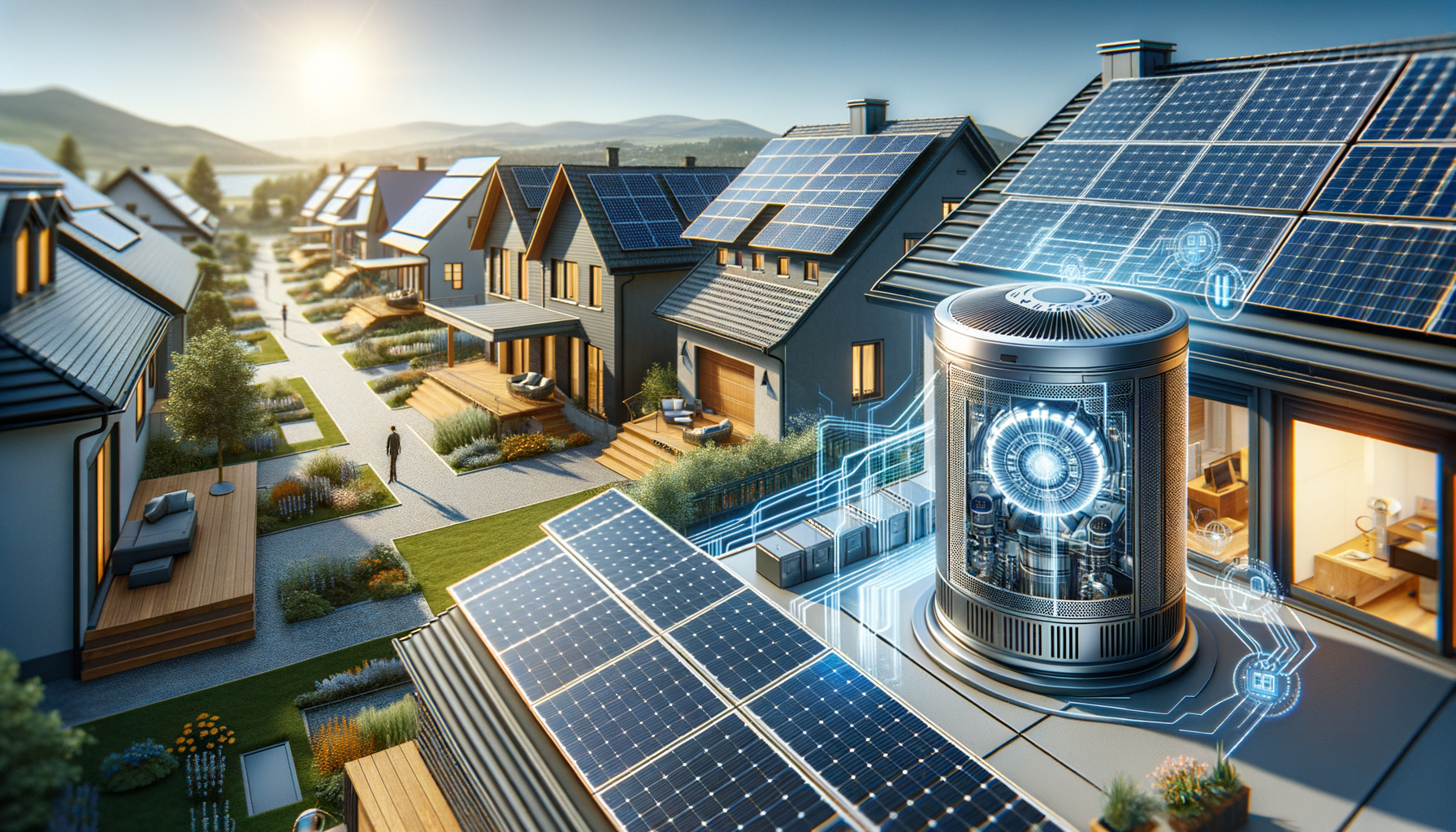Introduction to Home Solar Systems in 2025
As the world continues to grapple with climate change and rising energy costs, the year 2025 stands out as a pivotal moment for adopting renewable energy solutions. Home solar systems have emerged as a practical and efficient way to harness the sun’s energy, offering homeowners the opportunity to reduce their carbon footprint and save on utility bills. With technological advancements and government incentives, 2025 presents an ideal time to explore the benefits of solar energy for your home.
Home solar systems are not just a trend but a significant step toward sustainable living. They provide a reliable power source, reduce dependency on fossil fuels, and contribute to a cleaner environment. As more people become aware of the environmental impact of traditional energy sources, the demand for solar solutions is expected to grow. This guide will explore the various aspects of home solar systems, helping you make an informed decision about investing in this green technology.
Understanding Solar Technology
Solar technology has come a long way since its inception, and 2025 is set to witness further innovations that make solar systems more accessible and efficient. At the heart of these systems are solar panels, which convert sunlight into electricity. These panels are made up of photovoltaic cells that capture solar energy and transform it into direct current (DC) electricity. An inverter then converts this DC electricity into alternating current (AC), which powers your home appliances.
In 2025, one can expect to see advancements in solar panel efficiency and durability. New materials and designs are being developed to enhance energy capture and reduce costs. Additionally, the integration of smart technology allows homeowners to monitor and optimize their solar energy usage, ensuring maximum efficiency. These innovations not only make solar systems more appealing but also more affordable, making it easier for homeowners to transition to renewable energy.
Key benefits of solar technology include:
- Reduced energy bills
- Low maintenance costs
- Increased property value
- Energy independence
Financial Considerations and Incentives
Investing in a home solar system requires careful financial planning, but the potential savings and incentives in 2025 make it a worthwhile investment. The initial cost of solar panels and installation can be significant, but various financing options and government incentives can help offset these expenses.
In 2025, homeowners can take advantage of tax credits, rebates, and other financial incentives designed to promote renewable energy adoption. These incentives can significantly reduce the upfront costs, making solar systems more accessible to a broader audience. Additionally, many solar companies offer financing plans that allow homeowners to pay for their systems over time, easing the financial burden.
It’s important to consider the long-term savings when evaluating the cost of a solar system. With rising utility rates, the savings on energy bills can quickly add up, providing a return on investment within a few years. Moreover, the increase in property value and the potential to sell excess energy back to the grid through net metering further enhance the financial benefits of going solar.
Environmental Impact and Sustainability
One of the most compelling reasons to invest in home solar systems is their positive impact on the environment. By harnessing the sun’s energy, homeowners can significantly reduce their carbon footprint and contribute to a more sustainable future. Solar energy is a clean, renewable resource that does not produce harmful emissions or deplete natural resources.
As climate change continues to be a pressing global issue, the shift toward renewable energy sources like solar power is crucial. In 2025, the adoption of solar systems is expected to play a significant role in reducing greenhouse gas emissions and promoting environmental sustainability. By choosing solar energy, homeowners can actively participate in the fight against climate change and help preserve the planet for future generations.
Benefits of solar energy for the environment include:
- Reduction in air pollution
- Conservation of water resources
- Decreased reliance on fossil fuels
- Mitigation of climate change effects
Future Trends in Home Solar Systems
As we look to the future, the evolution of home solar systems is poised to continue, with exciting trends and innovations on the horizon. In 2025, we can expect to see advancements in energy storage solutions, such as more efficient batteries that allow homeowners to store excess energy for use during cloudy days or at night. These developments will enhance the reliability and flexibility of solar systems, making them even more attractive to homeowners.
Another trend to watch is the integration of solar technology with smart home systems. This synergy allows homeowners to optimize their energy usage, monitor system performance, and make informed decisions about their energy consumption. Additionally, the rise of community solar projects offers an alternative for those who cannot install solar panels on their property, allowing them to participate in shared solar initiatives and benefit from renewable energy.
The future of home solar systems in 2025 looks promising, with continued advancements and increased adoption. As technology evolves and awareness of the benefits of solar energy grows, more homeowners will likely embrace this sustainable solution, paving the way for a cleaner and more energy-efficient future.




Leave a Reply